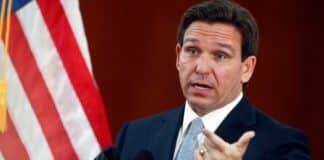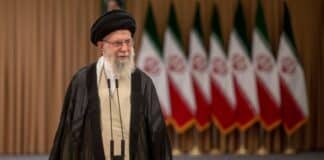The corruption trial of former Illinois House Speaker Michael Madigan continues to unfold with significant testimonies and evidence presented by federal prosecutors. Madigan, along with co-defendant Michael McClain, faces 23 counts of bribery, racketeering, and official misconduct tied to an alleged scheme referred to as the “Madigan Enterprise.”
Mika Baugher, Madigan’s executive assistant from 2017 to 2021, testified as prosecutors introduced years of Madigan’s detailed schedules. The documents revealed meetings and interactions with several prominent individuals, including McClain, law partner Victor Reyes, campaign worker Ed Moody, state representatives Eddie Acevedo and Mike Zalewski, and Governor J.B. Pritzker. These schedules have become a focal point for the government in demonstrating Madigan’s alleged misuse of power.
AT&T Associate Director of Technology Jack Randall also testified, explaining wireless record data that verified six phone calls presented as evidence. Prosecutors highlighted recordings of McClain, including conversations where he described himself as “Madigan’s agent” while discussing legislative matters such as a gaming bill. In one exchange, McClain warned a legislator not to document sensitive information, stating, “The feds are gonna look at it.”
Earlier, former Chicago Alderman Daniel Solis continued his testimony as a government cooperator. Solis, who struck a deal with prosecutors to potentially retain his $100,000 annual pension, confirmed his participation in recorded conversations about political dealings. In one notable recording from 2017, Solis and McClain discussed a proposed development in Chicago’s Chinatown, strategizing ways to navigate opposition and leverage anticipated political changes.
The Chinatown project faced hurdles from then-Illinois Transportation Secretary Randy Blankenhorn, under Republican Governor Bruce Rauner. McClain expressed optimism, suggesting a “dual path” strategy to gain support if Democrat J.B. Pritzker were to win the governorship. The discussions underscored Madigan’s alleged involvement in steering development projects for political gain.
Defense attorneys pressed Solis on his credibility and motives, including his cooperation with federal investigators. Solis acknowledged participating in various investigations, including that of former Chicago Alderman Ed Burke. However, Judge John Robert Blakey restricted references to Burke by name, instructing prosecutors to describe him only as a “high-ranking official.”
The trial proceedings faced several delays as Judge Blakey addressed legal disputes and objections from both sides. Despite objections from the defense, testimony linking Madigan to no-show jobs and contracts benefiting companies like ComEd and AT&T Illinois remained central to the case. Prosecutors allege that these arrangements were part of a broader scheme to secure favorable legislation in Springfield.
Madigan, who served as Illinois House Speaker for nearly four decades and chaired the Democratic Party of Illinois for over two decades, has denied all allegations. McClain, a former state representative and longtime lobbyist, is accused of playing a pivotal role in executing Madigan’s directives. Both men’s legal teams continue to challenge the prosecution’s narrative.
The trial, which resumed Wednesday at the Everett McKinley Dirksen U.S. Courthouse in Chicago, is expected to further examine recordings, call records, and testimonies that prosecutors argue build a compelling case of political misconduct. As the proceedings continue, the implications of the allegations against one of Illinois’ most powerful political figures loom large.






